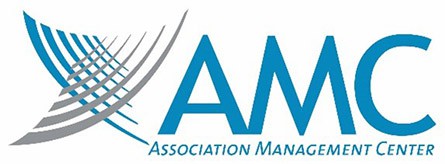For the first 12 years of my life, my family lived just outside of Windsor in England. My dad was an American expat working for an international company in Europe and was able to leverage his unique personal brand. A former Marine, he wore square-toe cowboy boots with business suits and read 1–2 books a week. He was a sales road warrior in the paper industry with a forestry and engineering background and a U.S. patent under his belt. He was direct, had a bit of a temper, and was known for his specific knowledge. There really was nobody else like him. When we moved to the United States and his territory changed to North and South America, I remember him receiving a call to travel to France. A customer there had stated that they only wanted to work with him; his involvement was a deal-breaker. Based on a past project, he had left a lasting impression and exhibited memorable qualities that the customer relied on to accomplish their business goals. He had a strong and enduring personal brand.
Wikipedia defines personal branding as “the practice of marketing people and their careers as brands. It is an ongoing process of developing and maintaining a reputation and impression of an individual, a group, or an organization.”
Obviously, in my career, I’ve looked to my dad as an inspiration to influence my own brand. Additionally, I’ve looked to others both inside and outside of the association industry. My colleague Sara Dethloff, who is almost 2 years out of college, shares, “I think about the fact that I take a little bit of flavor from the people around me who are role models or others I think of as having a similar personal brand that I am trying to achieve.” Well said! We are all a result of the influences around us—whether it be through social media, business interactions, podcasts, peers, family, and friends.
What Personal Brand Means at AMC
I reached out to respected colleagues within AMC to get their thoughts on what personal brand means to them:
Louise Ristau, CAE, Executive Director, AMC
What is a personal brand? It’s what people think of when they hear your name. It’s the impression you make and the reputation you’ve earned. If you want a strong and positive personal brand, here are some things to consider:
- Be authentic—be confident in who you are and your values. People can see through pretense.
- Think about how you present yourself. It may be overused but it’s true: you never get a second chance to make a first impression. So, present yourself well—dress neatly, keep yourself well-groomed, speak clearly, hold your head high, and smile. Years ago a woman I respect told me, “Even if it’s a casual day, you should be dressed so that if a client or vendor stopped in the office, you’d feel confident meeting with them.” Think about that as you prepare for your day.
- Be true to your word, meet deadlines, keep promises, and be humble. Produce high quality work. Hold yourself accountable. And if you make a mistake—own it and learn from it.
- Be kind, be helpful, and say please and thank you.
- Be an encourager!
Summar Jonas, Talent Acquisition Manager, AMC
Personal brand is how you represent yourself and how you will be remembered by others. This will play an important role throughout your career, starting from the initial interview. When thinking about your personal brand, first ask, what motivates me? When this becomes clear, it is easier to set goals. Continue to challenge yourself to become more introspective. What are you known for in the work setting? How do you choose to interact with colleagues and clients? How do you respond when challenges arise? Is there consistency in your stated interests and professional goals across your resumé, LinkedIn profile, professional affiliations, volunteer efforts, and educational pursuits? Exploring these kinds of questions can help you strengthen and define your own personal brand.
Colleen Bagnasco, CMP CAE, Executive Director, AMC
I think the best advice I have for individuals to enhance their personal brand is to always be prepared, be positive, be humble and to show up consistently in all interactions. It’s also crucial to ask for (and to give) honest and meaningful feedback. Have those difficult conversations respectfully. In turn, you are building a great personal brand. People will always remember how you made them feel.
Bruce Hammond, CAE, Executive Director, AMC
Personal branding is about bringing my authentic self to every interaction. It might not always be the most beautifully packaged product, but having people know that they are “getting me” when we connect and engage is important. I recently read a short post from a LinkedIn connection of mine, Amy Jo Martin (author of New York Times best seller Renegades Write the Rules), that really speaks well to this concept, “Personal branding is an inside job. As soon as we let go of what we think everyone else wants us to be, we’ve arrived at being ourselves. THAT is when real connection happens… Don’t let your ‘personal brand’ elbow out the real you. The world needs you to be you.” Be authentic. Be respected. Be you.
Key themes are prevalent throughout these responses. What can you take away today to fine tune your personal brand?
Liz Giannini is a senior account manager for the Awards and Personalization Association and the Council of Engineering and Scientific Society Executives.
Be the first to know about the latest articles, news, and events from AMC. Sign up for our emails!

